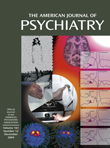Bradycardia at Low Doses of Risperidone
Mr. A was an 80-year-old widowed white man with a history of coronary artery disease and cerebrovascular disease who was transferred to our clinic from an outside facility for treatment of dementia not otherwise specified. He was originally hospitalized for an inability to care for himself, with confusion, delusions, and poor orientation. At the outside facility, an ECG revealed a normal sinus rhythm at 74 bpm, a P-R interval of 171, a QRS interval of 81 msec, and a QT/QTc of 362/402. His CBC, liver function tests, thyroid function tests, and basic metabolic panel were all normal. Mr. A was not taking any medication initially; during the stay, the following medications were given to him: risperidone, 0.75 mg/day (for agitation and delusions), and donepezil, 10 mg/day. Five days afterward, Mr. A was admitted to our facility, and a diagnosis of dementia not otherwise specified was made. As part of our evaluation, we also performed an ECG and repeated the tests and studies. All laboratory values and studies, including calcium, phosphate, and magnesium were normal, except for borderline diabetes. Of interest was that his ECG now displayed marked sinus bradycardia with frequent premature ventricular contractions in a bigeminy pattern. His ventricular rate, including bigeminy, was 70 bpm. Discounting the confounding premature ventricular contractions, his heart rate was 38 bpm. His P-R interval was 180 msec, his QRS interval was 80 msec, and his QT/QTc was 481/451 msec. Pending evaluation by the cardiology service and because of Mr. A’s increased agitation and delusional status, we increased his risperidone to an oral dose of 1.5 mg at bedtime. Seven days after being admitted to our service and 12 days after drug initiation, we discontinued risperidone. An ECG revealed a normal sinus rhythm, with a rate of 67 bpm within 1 day of discontinuation. Throughout this time, Mr. A reported no syncope or palpitations. All major laboratory values and studies were normal before, during, and after the addition of risperidone.
References
Information & Authors
Information
Published In
History
Authors
Metrics & Citations
Metrics
Citations
Export Citations
If you have the appropriate software installed, you can download article citation data to the citation manager of your choice. Simply select your manager software from the list below and click Download.
For more information or tips please see 'Downloading to a citation manager' in the Help menu.
There are no citations for this item
View Options
View options
PDF/ePub
View PDF/ePubGet Access
Login options
Already a subscriber? Access your subscription through your login credentials or your institution for full access to this article.
Personal login Institutional Login Open Athens loginNot a subscriber?
PsychiatryOnline subscription options offer access to the DSM-5-TR® library, books, journals, CME, and patient resources. This all-in-one virtual library provides psychiatrists and mental health professionals with key resources for diagnosis, treatment, research, and professional development.
Need more help? PsychiatryOnline Customer Service may be reached by emailing [email protected] or by calling 800-368-5777 (in the U.S.) or 703-907-7322 (outside the U.S.).

